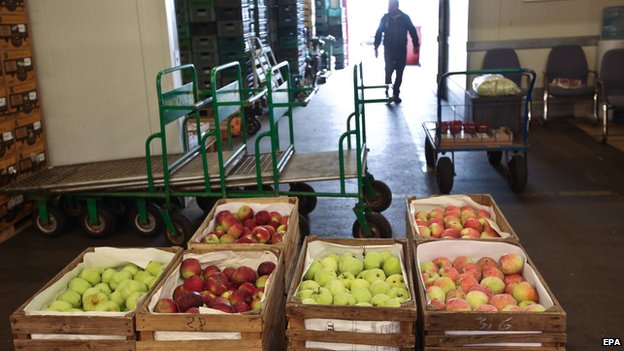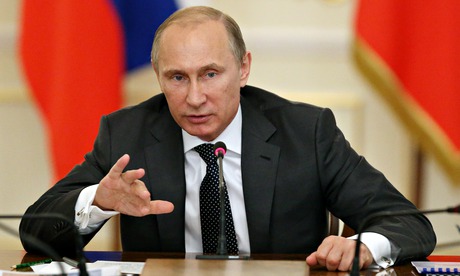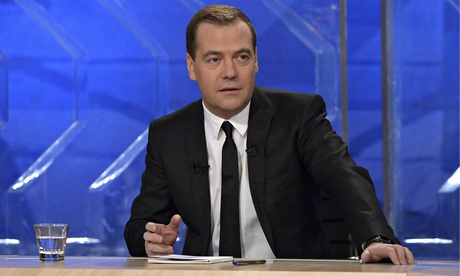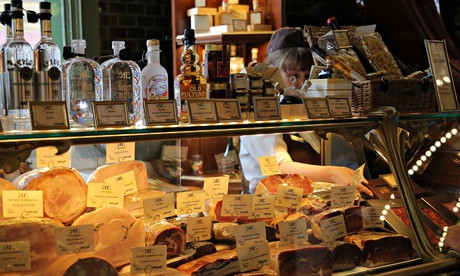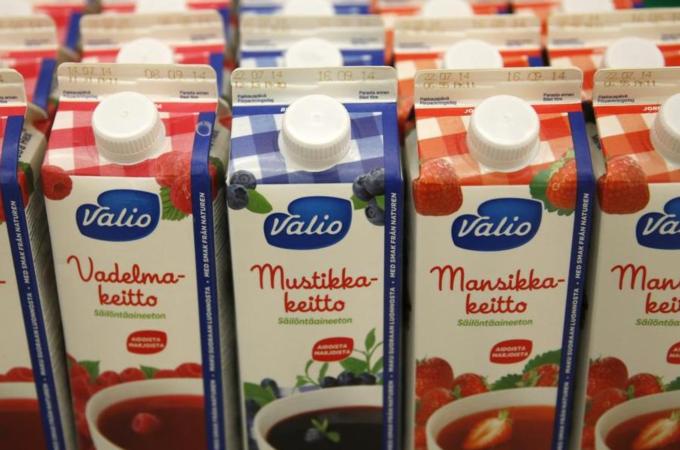Russia Bans Food Imports From The US and The EU. But Will It Affect The Russian Shoppers?
Russia has banned most food imports from the United States and the European Union in obvious retaliation to tough Western sanctions against it over its role in neighbouring Ukraine.
Russians will no longer be able to buy fruit, vegetables, meat, fish or dairy products from the EU, the US, Australia, Canada and Norway
Apples in Warsaw: Russia has been a major export market for Polish apple growers
Image via bbcimg.co.ukVladimir Putin this week barred imports of agricultural produce from countries which have imposed sanctions on Russia for Moscow's support of the rebels in Ukraine. Fruit, vegetables, meat, fish and dairy imports from the EU, Australia, Canada, Norway and the US, would be banned immediately, Russia's prime minister, Dmitry Medvedev, told a government meeting on Thursday .
Russia's prime minister, Dmitry Medvedev, said the ban was effective immediately and would last for a year. It covers most foodstuffs from the US, the 28 EU countries, Canada, Australia and Norway.
themoscowtimes.com"Until the last moment, we hoped that our foreign colleagues would realise that sanctions lead to a blind alley, and that no one benefits from them. But they didn't realise this, and now we have been forced to respond," Medvedev said.
The EU and US have sanctioned a number of Russians, including billionaires believed to be close to Putin and those actively involved in the annexing Crimea and the unrest in eastern Ukraine
The latest developments come during heightened tensions between Russia and the West over Ukraine, where heavy shelling was reported in the eastern rebel stronghold of Donetsk on Thursday.
After the downing of Malaysia Airlines flight MH17, which pro-Russia rebels are believed to have shot down , a number of key Russian banks were also sanctioned, cutting them off from European capital markets.
However, the key question is whether the import ban would hurt European producers more than Russian consumers
Russian officials are also reported to be considering banning European airlines from flying to Asia over Siberia.
Image via guim.co.ukThe import ban will hit all EU countries and the United States, which last week stepped up punitive action against Russia in response to Moscow's support for eastern separatists in Ukraine, unwavering despite the downing of Malaysian airliner MH17.
aljazeera.comRussia is Europe's second largest market for food and drink and has been an important consumer of Polish pig meat and Dutch fruit and vegetables. Exports of food and raw materials to Russia were worth €12.2bn (£9.7bn) in 2013, following several years of double-digit growth. The UK is less likely to lose out; in 2013 its biggest food and drink export was £17m of frozen fish, followed by £5.7m of cheese and £5.3m of coffee.
The Kremlin's English-language channel, Russia Today, said the food ban could spark a "crisis in Europe" and would cost billions of pounds in lost revenues. There was less musing on the cost to ordinary Russians, who have become used to readily available imported foods.
Dmitry Medvedev confirmed Russia's ban on food imports from countries that had imposed economic sanctions on the Kremlin
Image via guim.co.uk"I am sure that our market will be filled with fresh quality Russian products, which anyway many Russians prefer to the imported ones," said Medvedev.
themoscowtimes.comMeanwhile, the US has largely dismissed the impact of Russia's decision on US exports
"The steps that Russia announced are likely insignificant as an impact on the US economy but they are also in some respects a cruel irony," said David Cohen, US undersecretary for terrorism and financial intelligence.
aljazeera.com"What the Russians have done here is essentially impose sanctions on their own people. And they have imposed a type of sanctions - limiting access to food - that the United States and our allies would never do," he said in a conference call.
In the meantime, many ordinary Russians said they were quite happy with the ban for political reasons, even if it meant they would have to bear price rises and diminished choice
Imported beef, pork, and poultry from western nations displayed at a St Petersburg store.
Image via guim.co.uk"I'm even glad. You got us, now we got you," said Slava Khrustalyov, an engineer shopping at a small supermarket in Moscow. "I'm glad not because sanctions affected me personally, but because that attitude toward Russians, it's not right."
Even at the run-of-the-mill supermarket where Khrustalyov was shopping, many items were foreign-made – cheeses from France, Italy and the Netherlands, cured meats from France, Italy and Spain, and fish from Norway. Asked about possible price increases, Khrustalyov, thought that the new requirements would force Russia to develop its own food industry: "I'm not worried, I can afford it."
Viktoria Korsak, another shopper, referred to her home region in southern Russia, saying: "If they ban Polish apples, we have great apples from the Kuban. Sanctions are trying to provoke us, but you shouldn't provoke Russians."
Others, however, have taken to social media to lambast the import ban, with some re-tweeting an internet survey that asked people which they valued more, "Crimea or cheese?". A reported 64% chose cheese, reports The Guardian.
"I'm shocked. Russia doesn't have good groceries. What will we eat?" said Dina, a designer who declined to provide her last name. She said her family avoided Russian-produced meat and would especially miss Australian lamb and French cheese under the ban. "It's very stupid, I don't understand how grown adults can make such stupid decisions," she said.
Alexander Kushayev, a film producer, said it would be hard to find replacements for some of the products, such as Italian olive oil and Swiss chocolate, that he normally bought but that he would not miss these foods terribly. "If they don't put a ban on travelling abroad, I will have the chance to try it in Switzerland," he said.
As for one of Russia's most famous residents, the American whistleblower Edward Snowden, who has just received a three-year residence permit allowing him to stay in Russia, his lawyer said at a press conference on Thursday that the import ban would not be a problem for him. "If there won't be American foodstuffs here I don't think he'll worry because he's already got used to Russian food," said Anatoly Kucherena.
